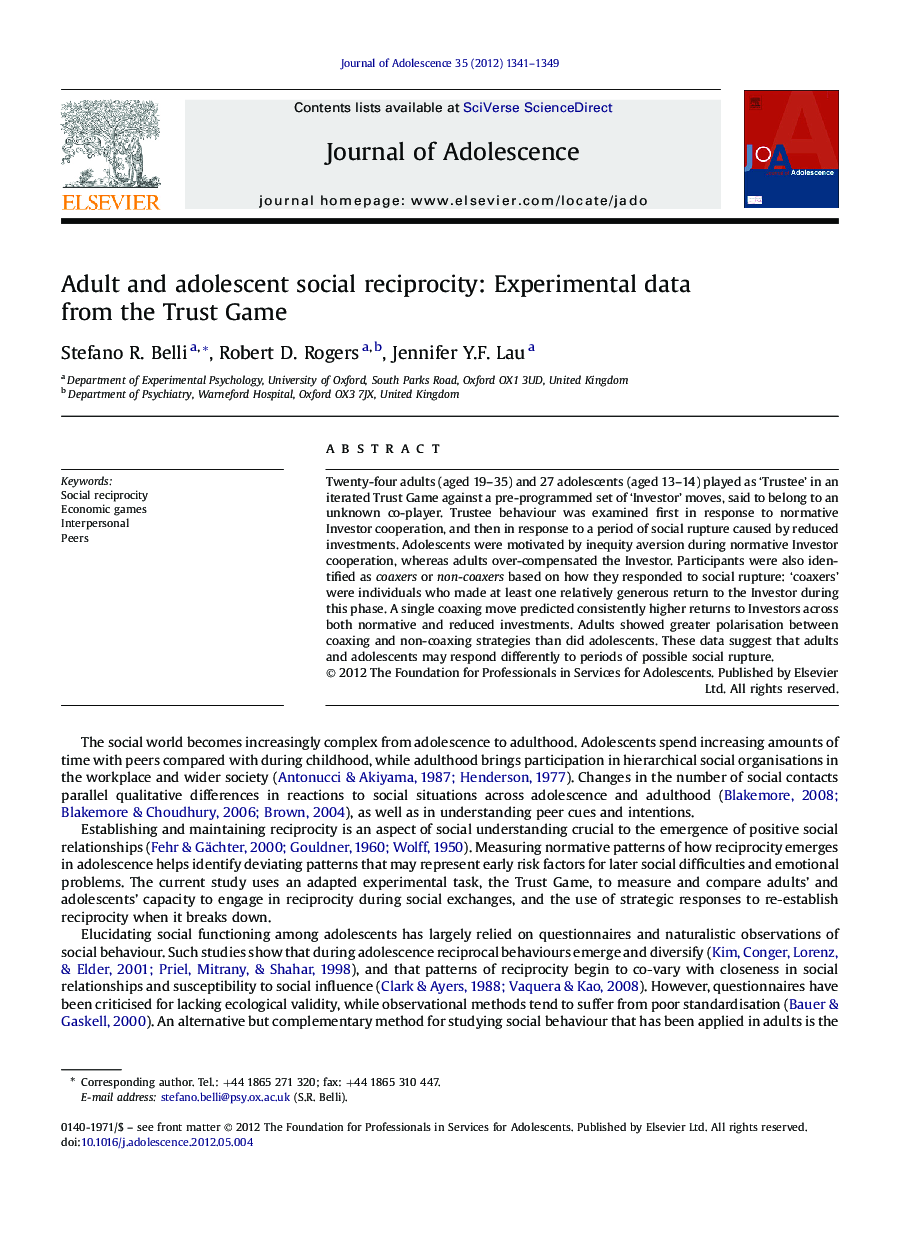| Article ID | Journal | Published Year | Pages | File Type |
|---|---|---|---|---|
| 881058 | Journal of Adolescence | 2012 | 9 Pages |
Twenty-four adults (aged 19–35) and 27 adolescents (aged 13–14) played as ‘Trustee’ in an iterated Trust Game against a pre-programmed set of ‘Investor’ moves, said to belong to an unknown co-player. Trustee behaviour was examined first in response to normative Investor cooperation, and then in response to a period of social rupture caused by reduced investments. Adolescents were motivated by inequity aversion during normative Investor cooperation, whereas adults over-compensated the Investor. Participants were also identified as coaxers or non-coaxers based on how they responded to social rupture: ‘coaxers’ were individuals who made at least one relatively generous return to the Investor during this phase. A single coaxing move predicted consistently higher returns to Investors across both normative and reduced investments. Adults showed greater polarisation between coaxing and non-coaxing strategies than did adolescents. These data suggest that adults and adolescents may respond differently to periods of possible social rupture.
